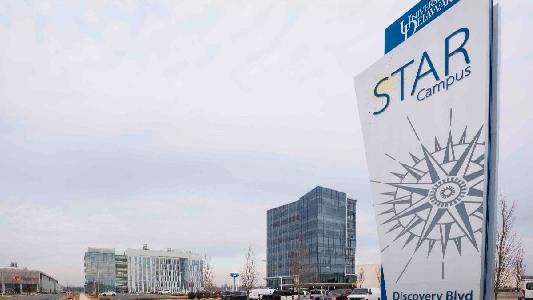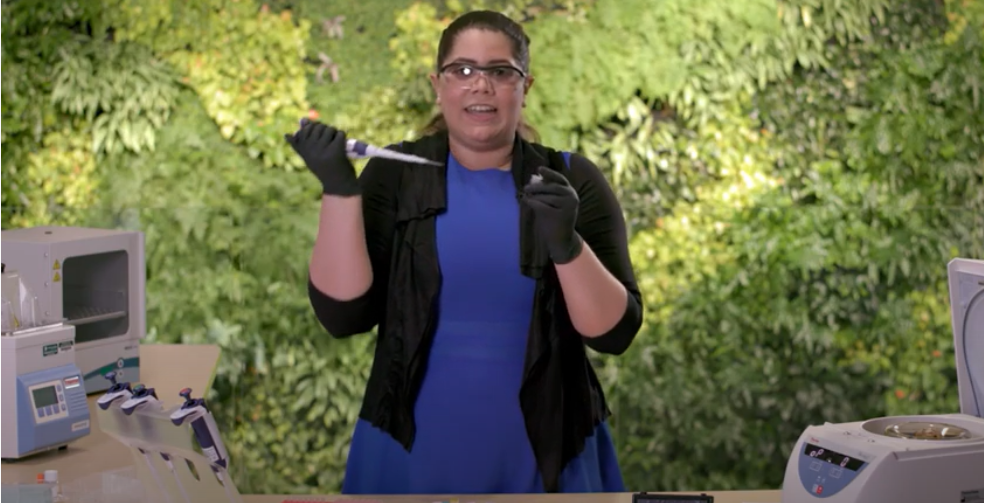If “gene editing” sounds scary to you, you’re not alone, and that’s a big part of why CRISPR in a Box exists.
ChristianaCare’s Gene Editing Institute Director Dr. Eric Kmiec and discovery research group leader Dr. Brett Sansbury created CRISPR in a Box in 2020 as a laboratory exercise for high school and college students to educate them about the gene editing therapy. The exercise, which was first launched to students at St. Georges Technical High School in April, demystifies the technology and encourages students of color, in particular, to peruse a career in gene editing.
In the case of CRISPR, recruiting more students of color, especially Black students, is more than a matter of diversity in the industry. CRISPR technology has shown promise in treating — and maybe eventually curing — sickle cell disease, an inherited red blood cell disease that can be debilitating and sometimes fatal. Of the sickle cell disease patients in the U.S., 90% are African American.
That means that trust in the therapy in the Black community is important if the disease is going to be eradicated.
“The program not only talks about gene editing using CRISPR in a Box to demonstrate, but also — why has sickle cell disease remained uncured?” Kmiec told Technical.ly in October. “Why is there discrimination against underserved populations? Is it because these diseases don’t affect the mainstream culture? We’re going to engage in those kinds of conversations.”
The conversation has now moved beyond the classrooms of Delaware Tech and St. Georges and is even more accessible, thanks to a partnership with DETV. The “CRISPR in the Classroom” series, which you can watch on DETVch.com, is a teaching tool for classrooms that can be shared with others in the community to help spread information about the CRISPR and its impact on sickle cell disease.
Watch the videosDETV, a Black-owned media company that broadcasts online and on Comcast Channel 28, is geared toward the diverse communities on Wilmington and Delaware as a whole, with much of its programming filling representation gaps for local communities of color.
“It was a beautiful project to work on, especially with a partner like ChristianaCare,” said Ivan Thomas, founder of DETV. “They came to me and were interested not only in our camera work, but our input on how to get into the community.”
One video in the series (see below) features a roundtable discussion with five young research scientists and a medical student who share a frank discussion about race, gender and their own personal journeys. They suggest that more inclusive environments in science and medicine can help build trust and eventually lead to the elimination of health disparities.
“It’s being received extremely well within the community, and more colleges and high schools are using the videos to teach about CRISPR,” said Thomas.
One of those schools is Appoquinimink High School in Middletown, which used the video series in a five-week summer program in a gene editing curriculum developed by the state of Delaware with help from the Gene Editing Institute. Brandywine and William Penn High Schools also plan to use the videos in their gene editing courses this coming school year.
Watch “Race, Gender and Science: A Roundtable Discussion” with Dr. Natalia Rivera-Torres:
Join the conversation!
Find news, events, jobs and people who share your interests on Technical.ly's open community Slack

Delaware daily roundup: Greentech terms to know post-Earth Day; generative AI's energy costs; anti-AI deepfake legislation

Delaware daily roundup: Delmarva Power vendor stats; DelDOT's $15M federal grant; 50 best companies to work for

UD's STAR Campus gears up for a major addition in biopharma


